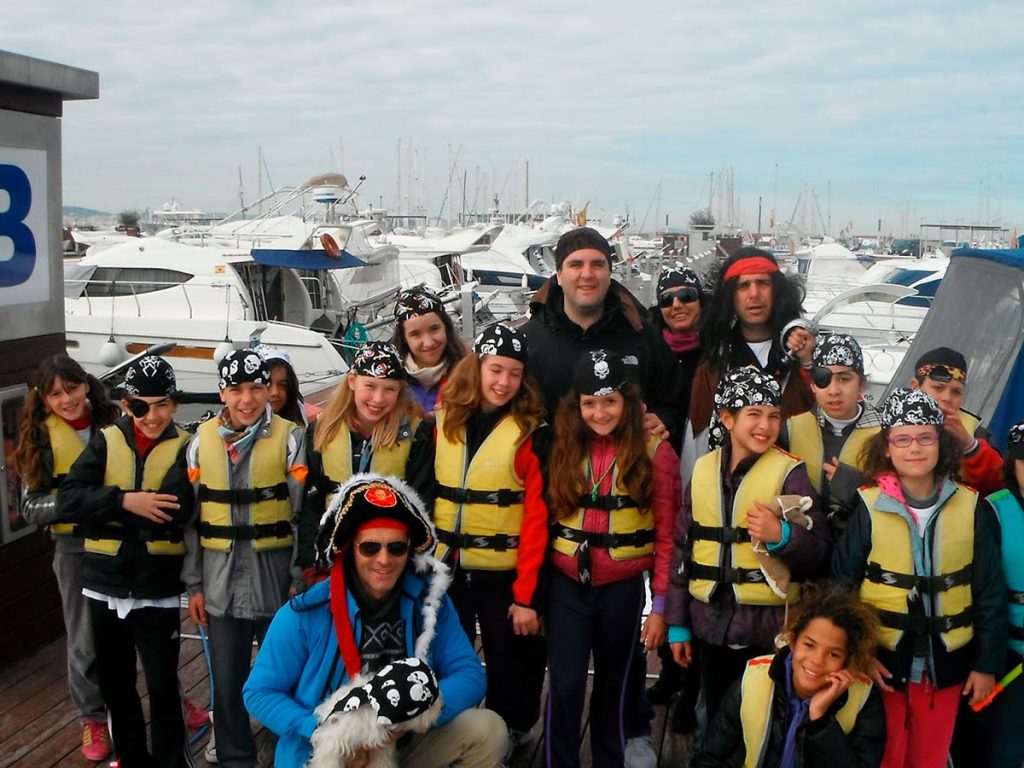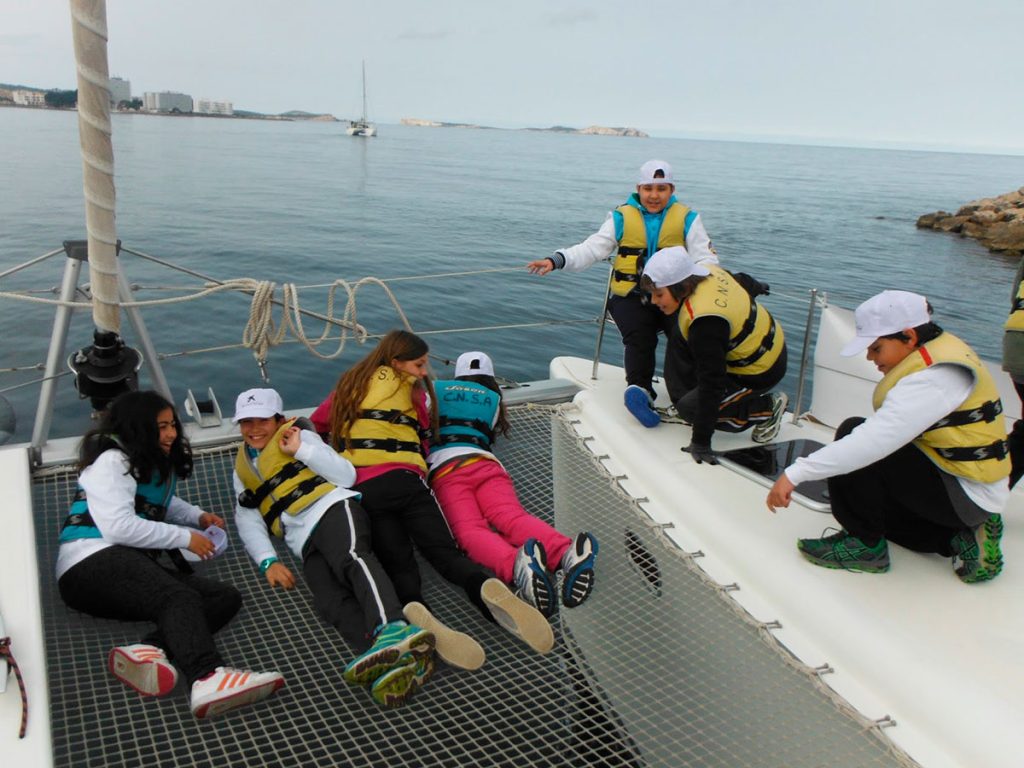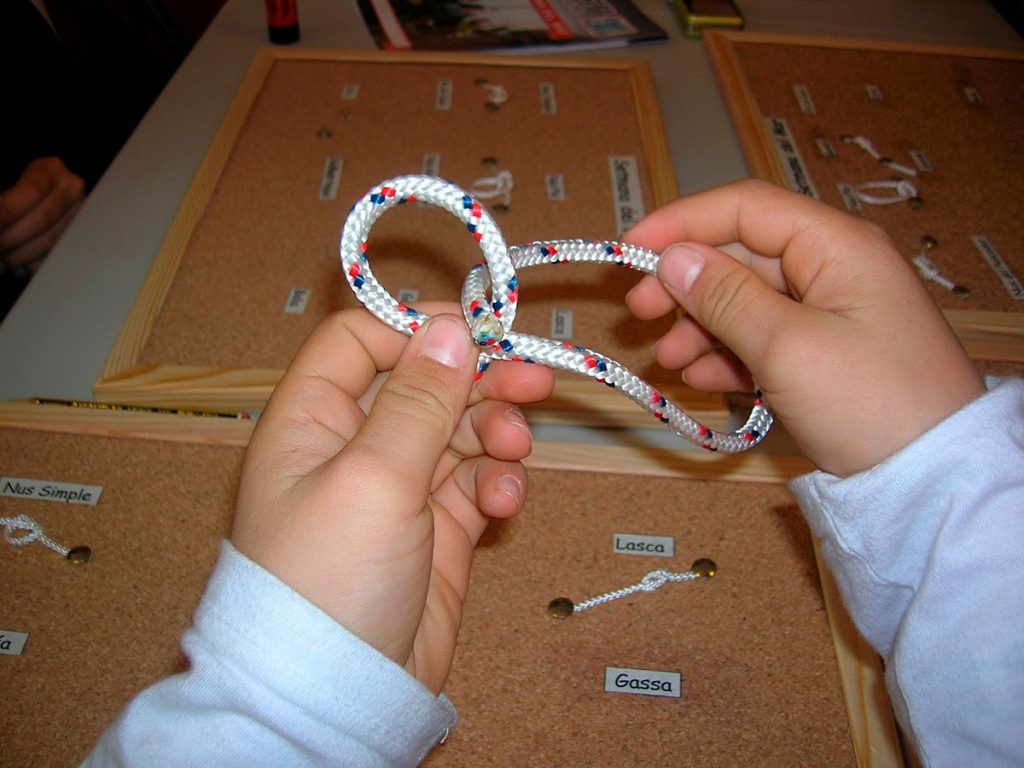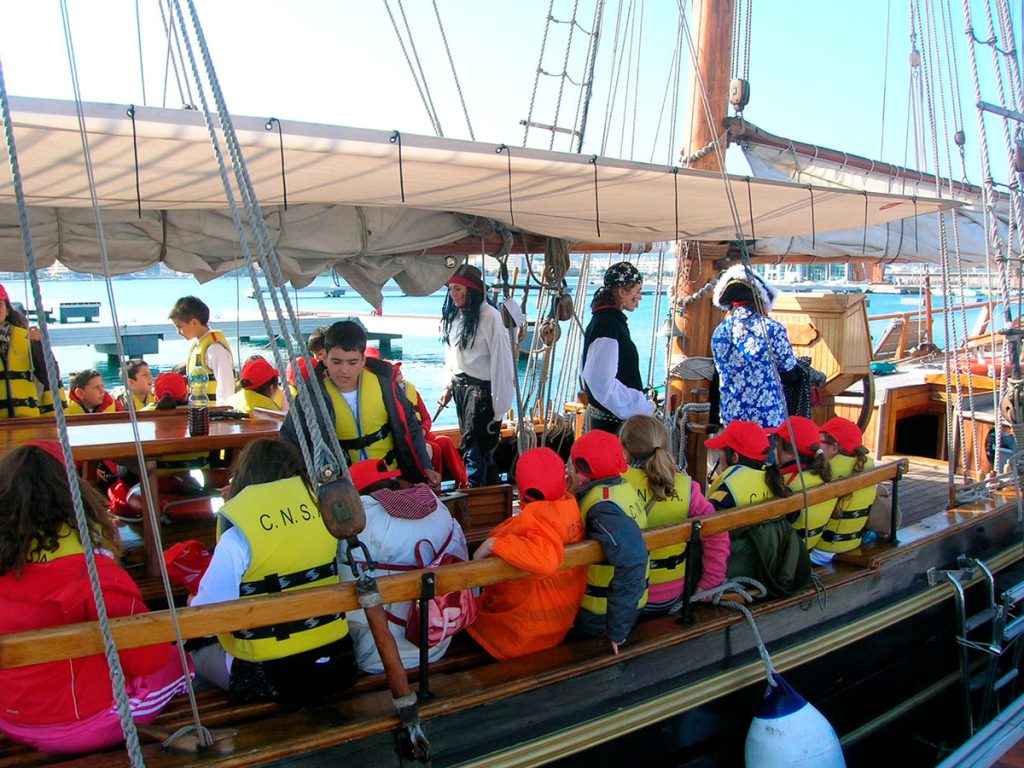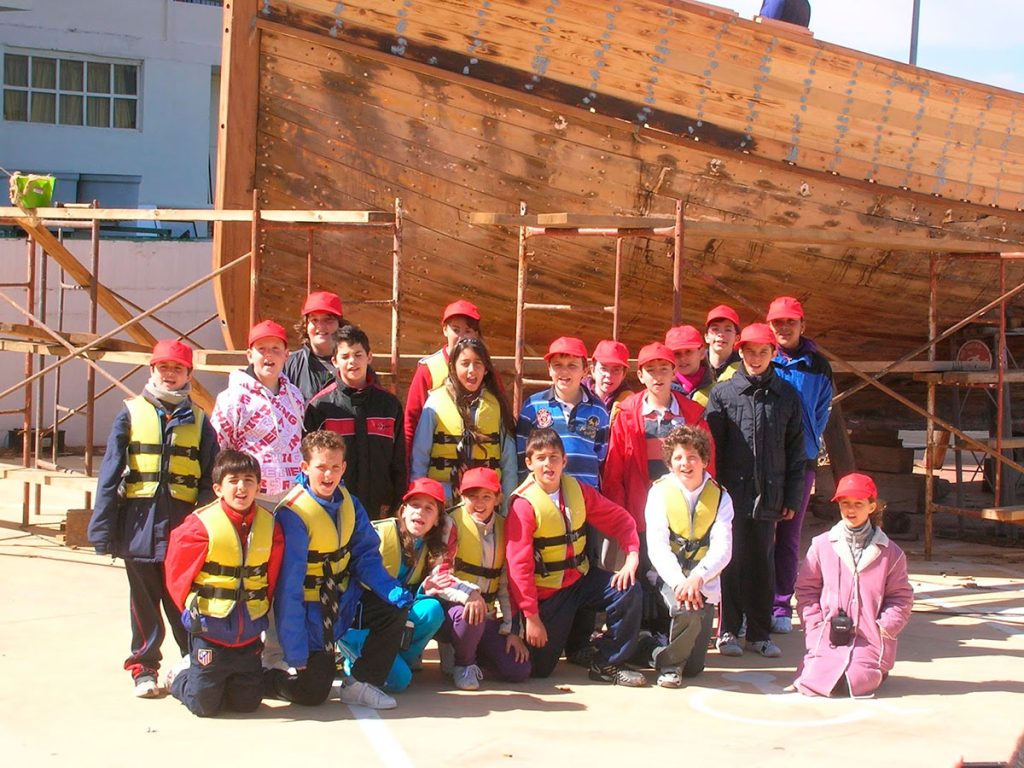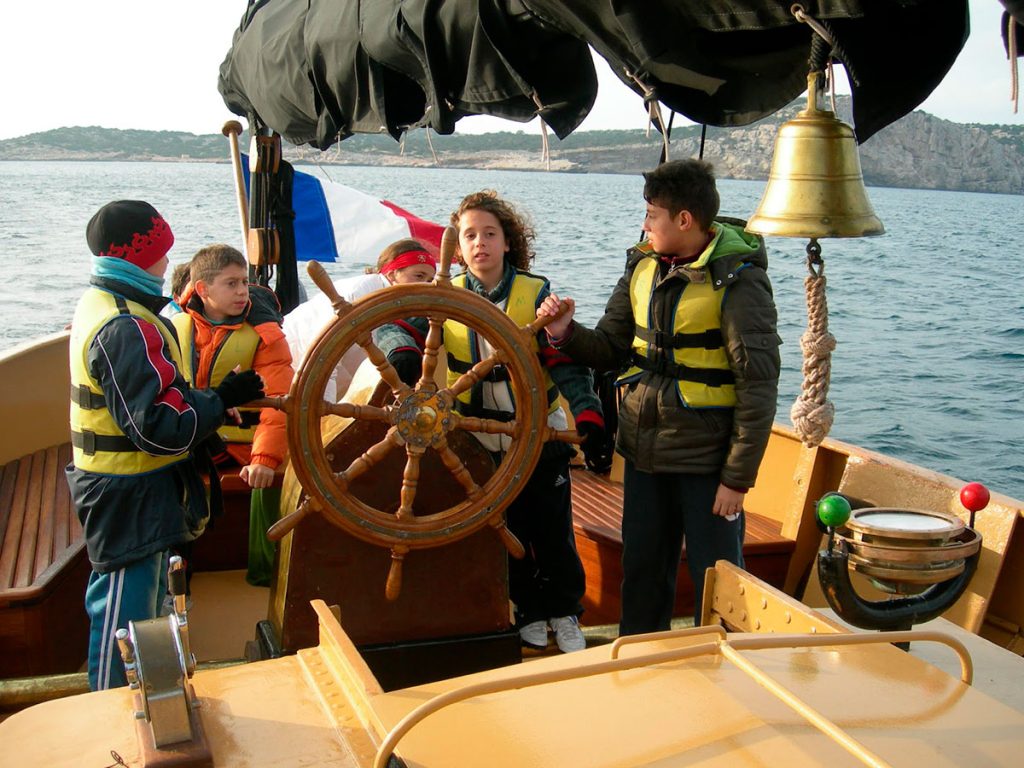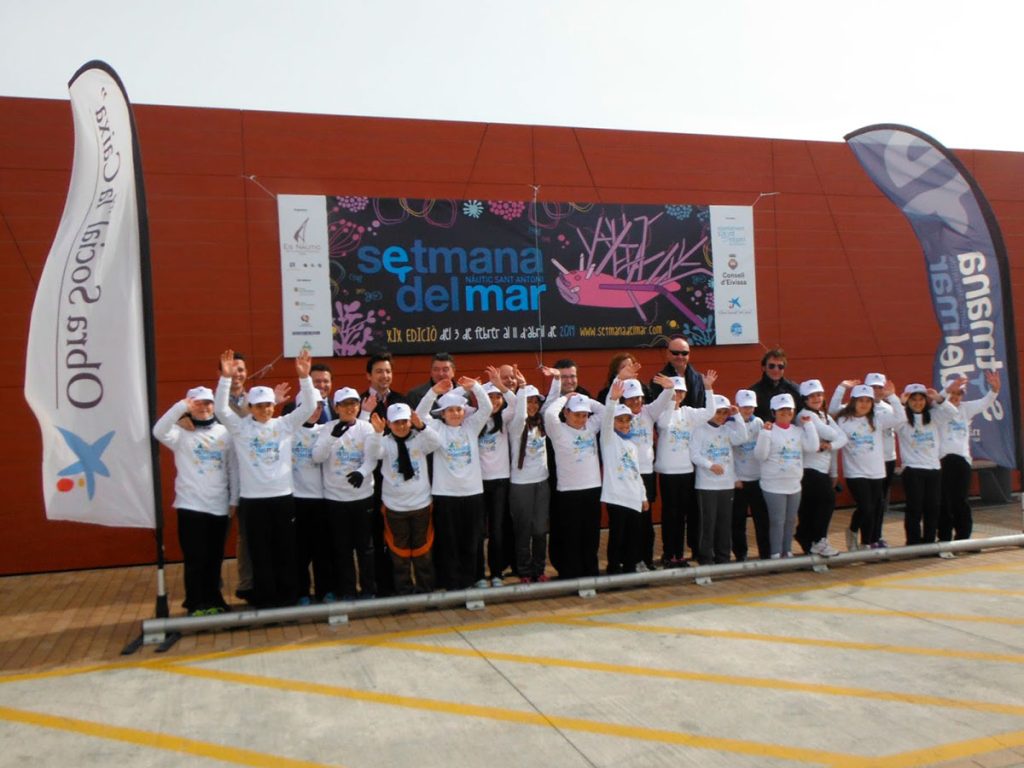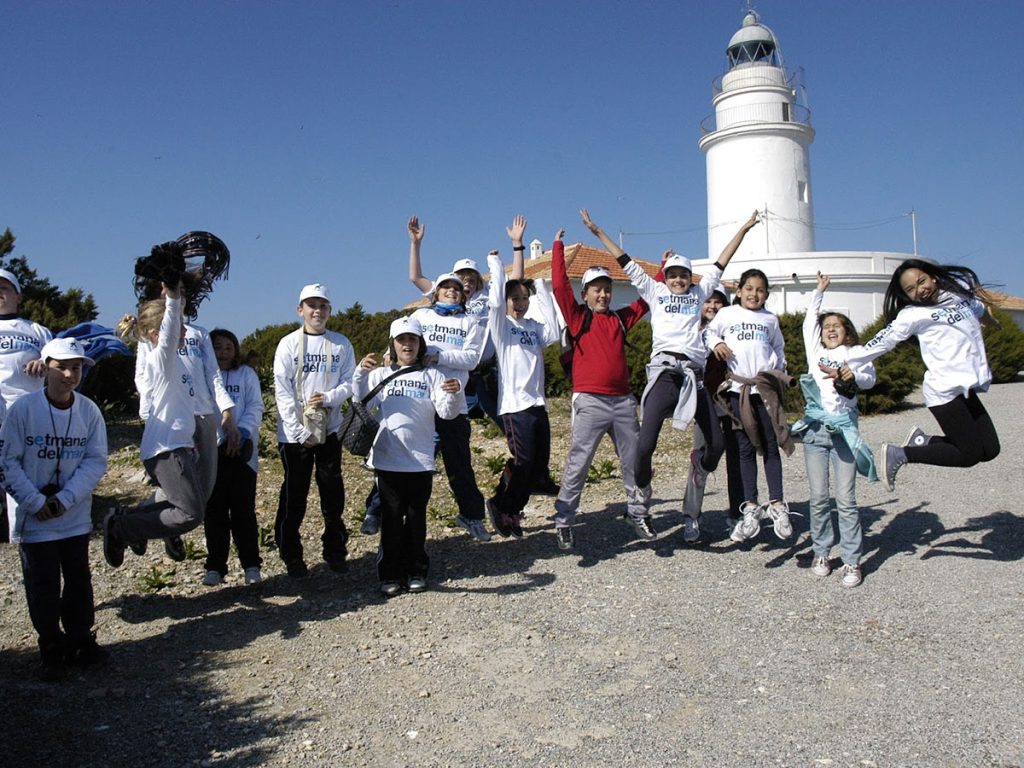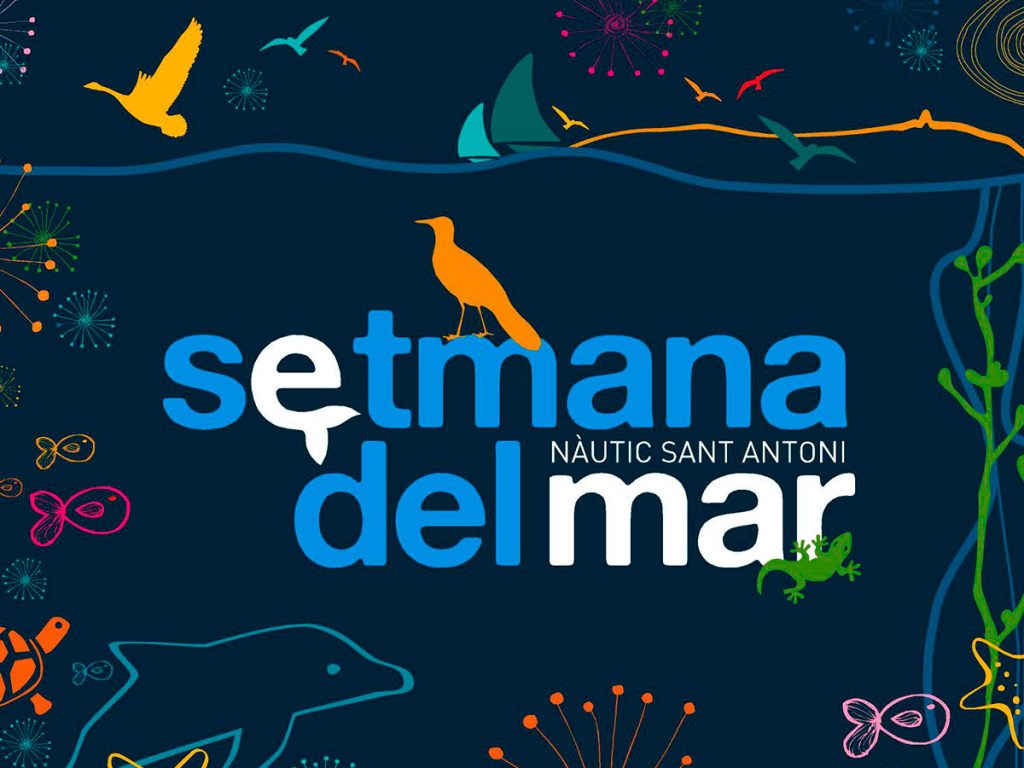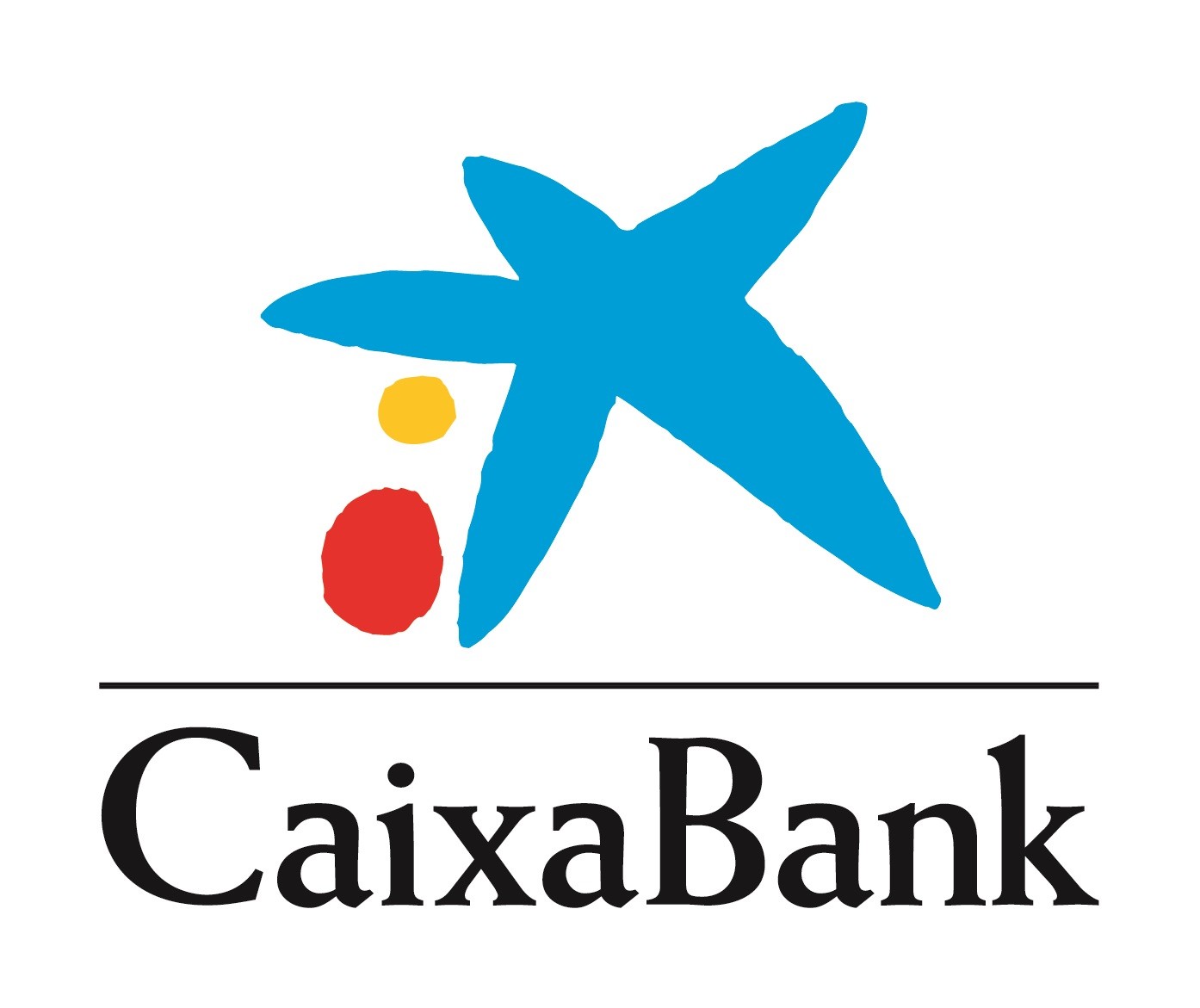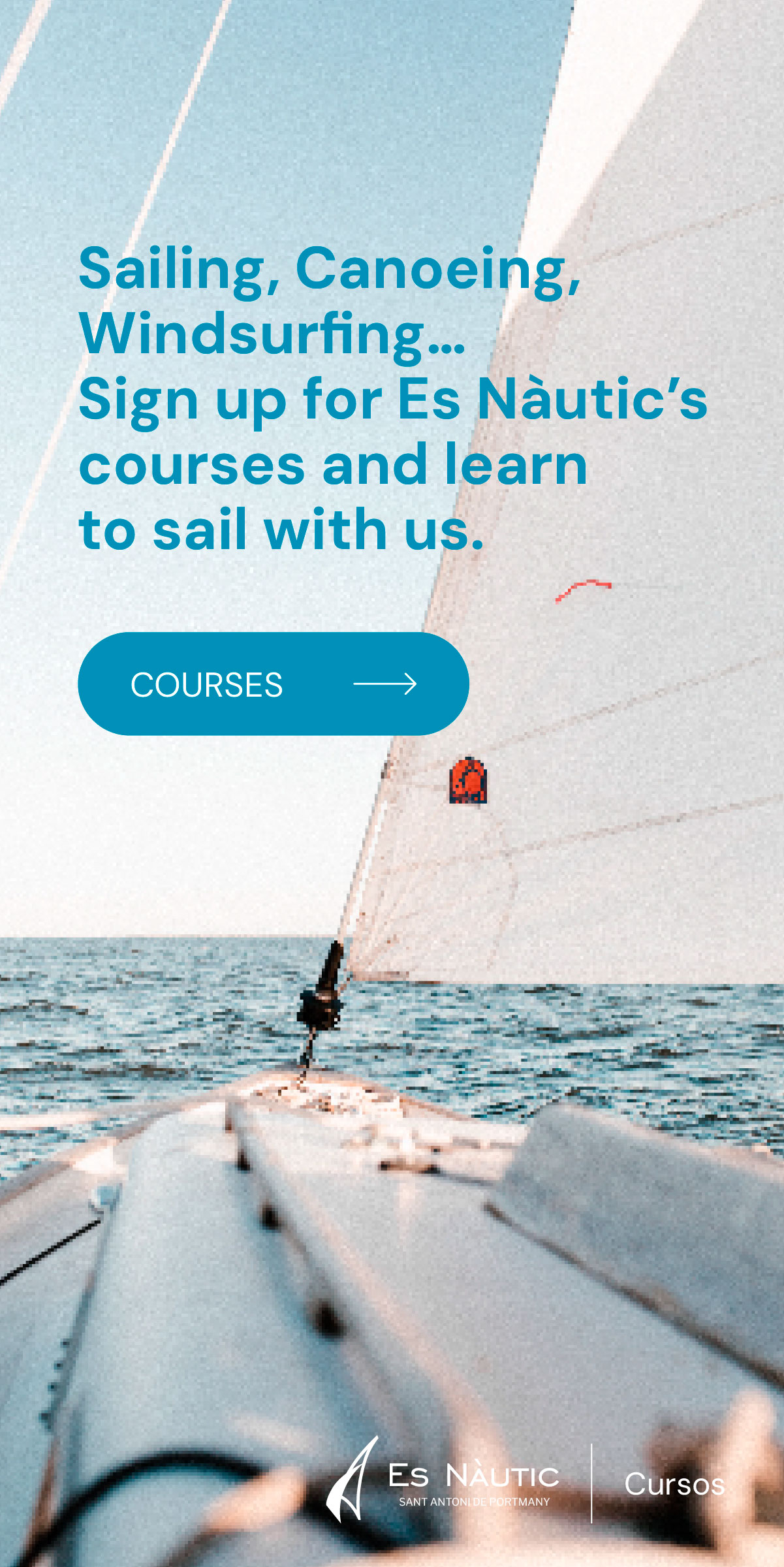The Setmana del Mar or Sea Week is an environmental educational activity involving sailing and getting close to the marine environment, and every year around 250 fifth year primary school children benefit from these activities. They come from around ten schools from all over Ibiza, chosen by a board who have assessed the projects submitted by the groups who apply.
This project is specifically designed to offer Ibizan schoolchildren a sea trip where they can learn to care for, respect and value the enormous environmental wealth that surrounds them. This purpose is achieved through the activity that is directly related to the sea, namely, sailing.
The project involves a number of practical workshops along with activities and trips to local nature reserves and other places of interest. Club Nàutic Sant Antoni has a team of monitors and trainers that organise and carry out the activities, using the club’s fleet of yachts as well as classrooms and other facilities. Each pupil enjoys a week of continuous training in which they learn about the environment, heritage, and culture, along with sailing values and practices within the framework of our marine environment.
The Setmana de Mar has always been an inclusive activity in which students with special educational needs mix with other schoolchildren in their group. The impetus for this venture has been fulfilled with sailing activities developed specifically for associations and groups of pupils with special needs, that are outside the usual competition access and which are held at different times while making the most of the structures and resources provided for the Setmana del Mar.
This activity is held during the first quarter of the year and is organised by Club Nàutic Sant Antoni, with the support of the Conselleria de Deportes y Juventud del Consell Insular d’Eivissa, – Ibizan Island Council Sports and Youth Board -Caixa d’Estalvis i Pensions de Barcelona (La Caixa – Caixabanc) and the Town Council of Sant Antoni, with the collaboration of the Board of Environment and Education of the Balearic Islands Government.
History of the Setmana del Mar
The idea of a Sea Week was first mooted in 1995, coinciding with the arrival of two new sailing monitors at the club, Juan Blanco and Mercedes Pérez, originally from Cantabria.
They were quick to notice that while Ibizan children might go on school trips to the snow, no one was actually teaching them the basic notions of learning to sail in the very sea that surrounded them. They submitted their idea to the Club Board of Directors who rapidly approved the proposal to create an activity designed for the island’s school children.
The idea coincided with the emergence of a number of educational projects in neighbouring schools and in the Consell Insular’s Aula del Mar, or Classroom of the Sea, with classes taught by the biologists Jaume Estarellas and Nuria Valverde. The synergies created through these educational projects were so impressive that the outcome was their coming together in a single venture, the Setmana del Mar organised by CNSA, and so far thousands of schoolchildren have attended the course over the years that the programme has been in existence.
From the start, with the initial edition, pupils taking part were able to enjoy a whole week experiencing the sea, with two days of sailing and spending a night on board, provided that weather permitted, along with day trips to the Illots de Ponent, the ses Salines nature reserve, Formentera, the Guild of Fishermen, the Cap Blanc Aquarium, etc. as well as innumerable activities and workshops about sailing, tying nautical knots, biodiversity, astronomy, meteorology…
The vessels used to sail with over the years have been classic craft such as the Turkish schooner Arabian Nights or the Saga, and modern catamarans, which are easier to manage. The Setmana del Mar team has always been multidisciplinary, comprising teachers, biologists, environmental educators and sailing monitors, all of them wogether running this adventure. Some of the students that enjoyed the experience in those early years have today become biologists, doctors, teachers and a host of other professions and careers with one thing in common, that is, their respect for and knowledge of the marine environment.

